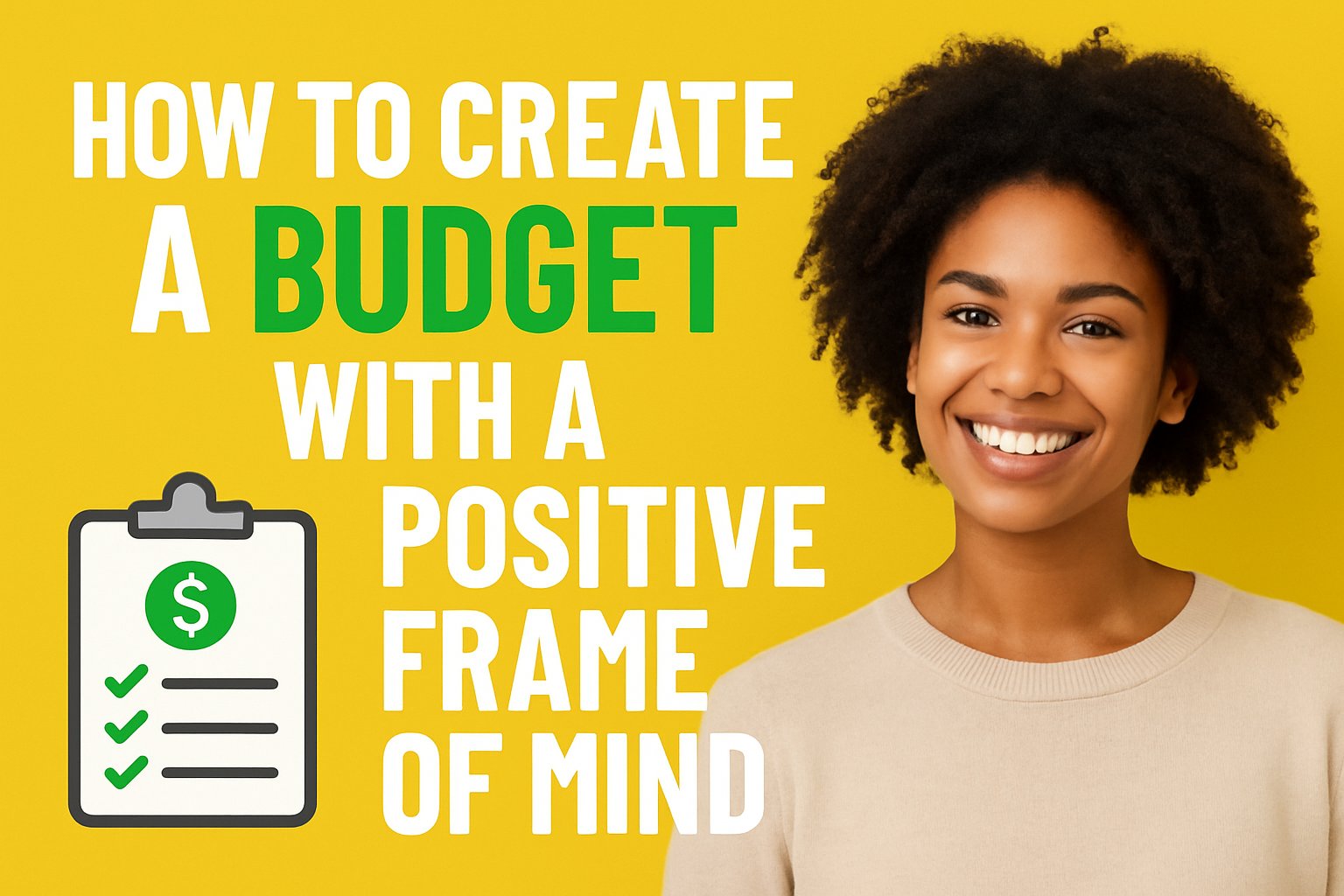How to Create a Budget with a Positive Frame of Mind is all about shifting your perspective. Budgeting doesn’t have to be about restrictions or sacrifices—it can be a tool for empowerment, helping you take control of your finances and move closer to your goals. When you approach budgeting with optimism and a positive mindset, it becomes an enjoyable and motivating process rather than a source of stress.
Instead of focusing on limitations, focus on what you can achieve and how budgeting can help make your dreams a reality. This guide will walk you through how to create a budget with a positive frame of mind, step by step, so you can build the financial future you desire.
1. Focus on Your “Why”
Before you dive into the numbers, take a moment to reflect on your deeper motivations. Why are you creating a budget? Whether you’re saving for a dream vacation, a down payment on a home, or simply aiming to improve your financial habits, understanding your “why” gives your budget purpose and direction.
How to Make It Work
- Clarify Your Goals: The clearer your goals, the more focused and purposeful your budget will be.
- Visualize Your Success: Imagine how it will feel when you reach your financial milestones. That positive energy will keep you motivated during tougher moments.
2. Track Income and Expenses Honestly
The first step in creating a budget that works is getting real about where your money comes from and where it goes. Start by tracking every dollar—income, bills, and discretionary spending. Transparency is key to building a solid, positive budget.
How to Make It Work
- Use Budgeting Tools: Apps and spreadsheets can make tracking both income and expenses easier and more accurate.
- Be Honest, Not Judgmental: When reviewing your spending patterns, avoid guilt. This process is about understanding your habits, not criticizing them.
3. Prioritize Joy and Essentials
Not all spending is bad. A healthy budget balances both essentials and the things that bring you happiness. By making space for both, you’re more likely to stick to your budget without feeling deprived.
How to Make It Work
- Cover Essentials First: Ensure that your basic needs—housing, utilities, food, and transportation—are prioritized in your budget.
- Include “Fun Money”: Set aside a portion of your budget for enjoyment—whether it’s dining out, hobbies, or entertainment. Life’s too short to skip the things that bring you joy!
4. Make Small, Sustainable Changes
Big financial changes can feel overwhelming, but small, consistent adjustments can lead to lasting success. Instead of drastic cuts, focus on gradual, sustainable changes that make a real difference over time.
How to Make It Work
- Cut Back, Don’t Cut Out: Instead of eliminating an expense entirely, consider reducing it over time. For example, cut down on dining out or find ways to reduce utility bills.
- Celebrate Small Wins: Each time you hit a budgeting milestone or successfully stick to your plan, celebrate it! Acknowledging progress boosts motivation and helps build confidence.
5. Adjust as You Go
Life is unpredictable, and so is your budget. It’s important to remain flexible and willing to adjust your budget as your financial situation and goals evolve. A rigid budget can lead to frustration, but one that adapts over time can help you stay on track without feeling constrained.
How to Make It Work
- Review Monthly: Set aside time at least once a month to review your budget, track your progress, and make any necessary adjustments.
- Stay Flexible: Unexpected expenses happen. Whether it’s a car repair or a special event, be ready to adapt your budget without feeling discouraged. Flexibility is key to long-term success.
Final Thoughts on How to Create a Budget with a Positive Frame of Mind
Creating a budget doesn’t have to feel like a chore—it can be a powerful tool for achieving your financial goals with intention and joy. By focusing on what you can control and maintaining a positive attitude, budgeting becomes a rewarding experience that empowers you to take charge of your financial destiny.
Remember, budgeting is a flexible process that evolves with your needs and circumstances. With each small step, you’re not just managing money—you’re building the foundation for a more fulfilling, stress-free financial life.
For more tips on creating a budget that supports your goals, check out this comprehensive guide from the National Foundation for Credit Counseling, a trusted resource for financial education and guidance.
Embrace budgeting as a tool for financial freedom, and with time, you’ll see how it can transform not only your finances but your life.

